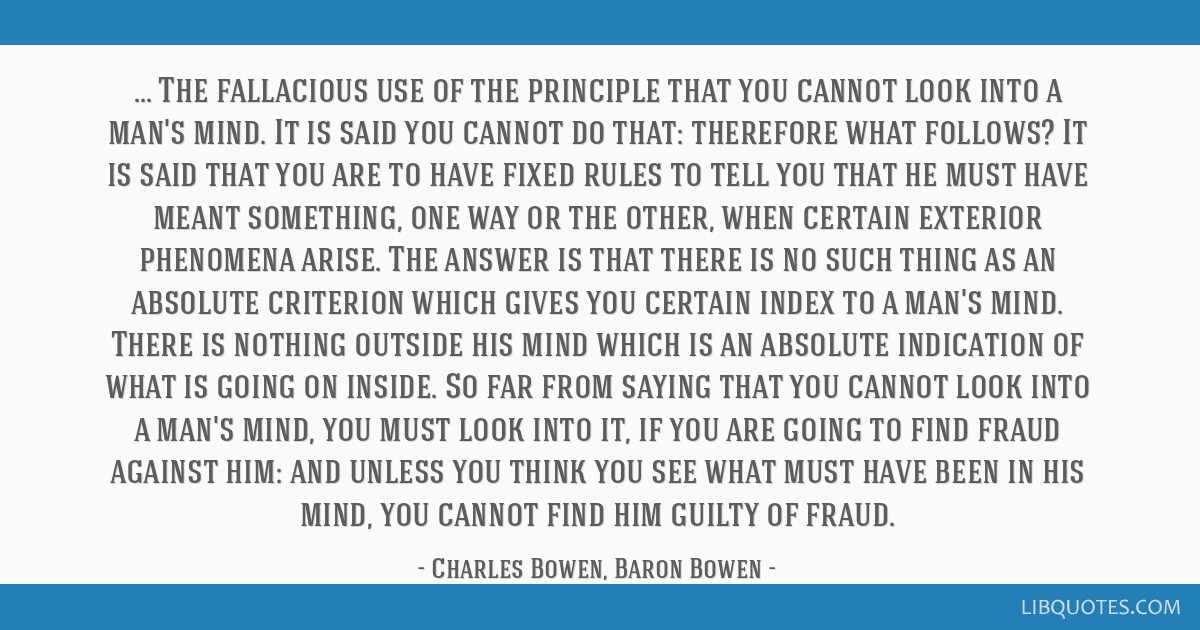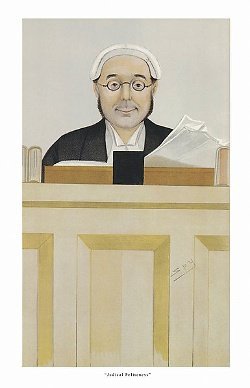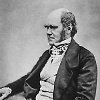... The fallacious use of the principle that you cannot look into a man's mind. It is said you cannot do that: therefore what follows? It is said that you are to have fixed rules to tell you that he must have meant something, one way or the other, when certain exterior phenomena arise. The answer is that there is no such thing as an absolute criterion which gives you certain index to a man's mind. There is nothing outside his mind which is an absolute indication of what is going on inside. So far from saying that you cannot look into a man's mind, you must look into it, if you are going to find fraud against him: and unless you think you see what must have been in his mind, you cannot find him guilty of fraud.
Angus v. Clifford (1891), L. R. 2 C. D. [1891], p. 471.























